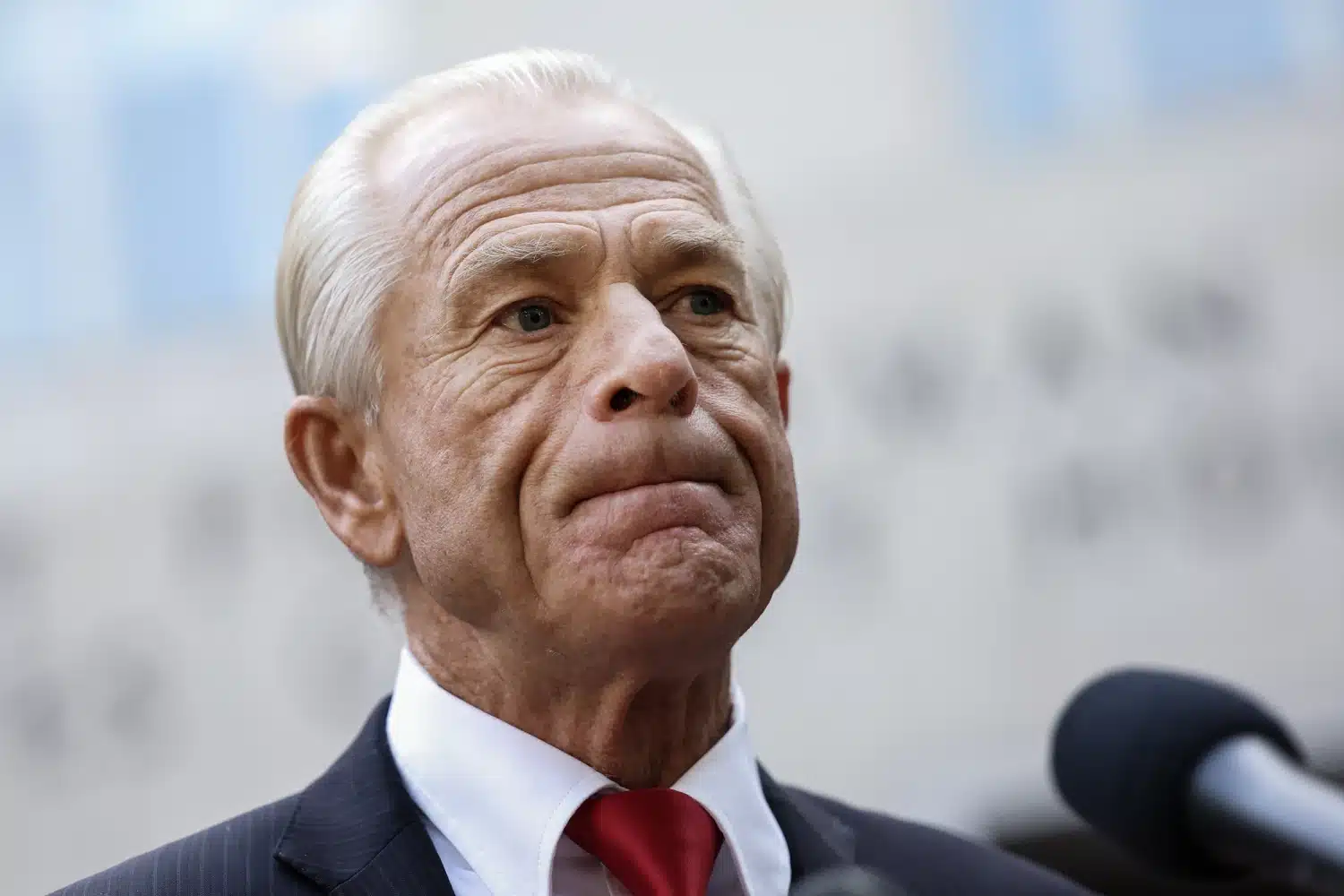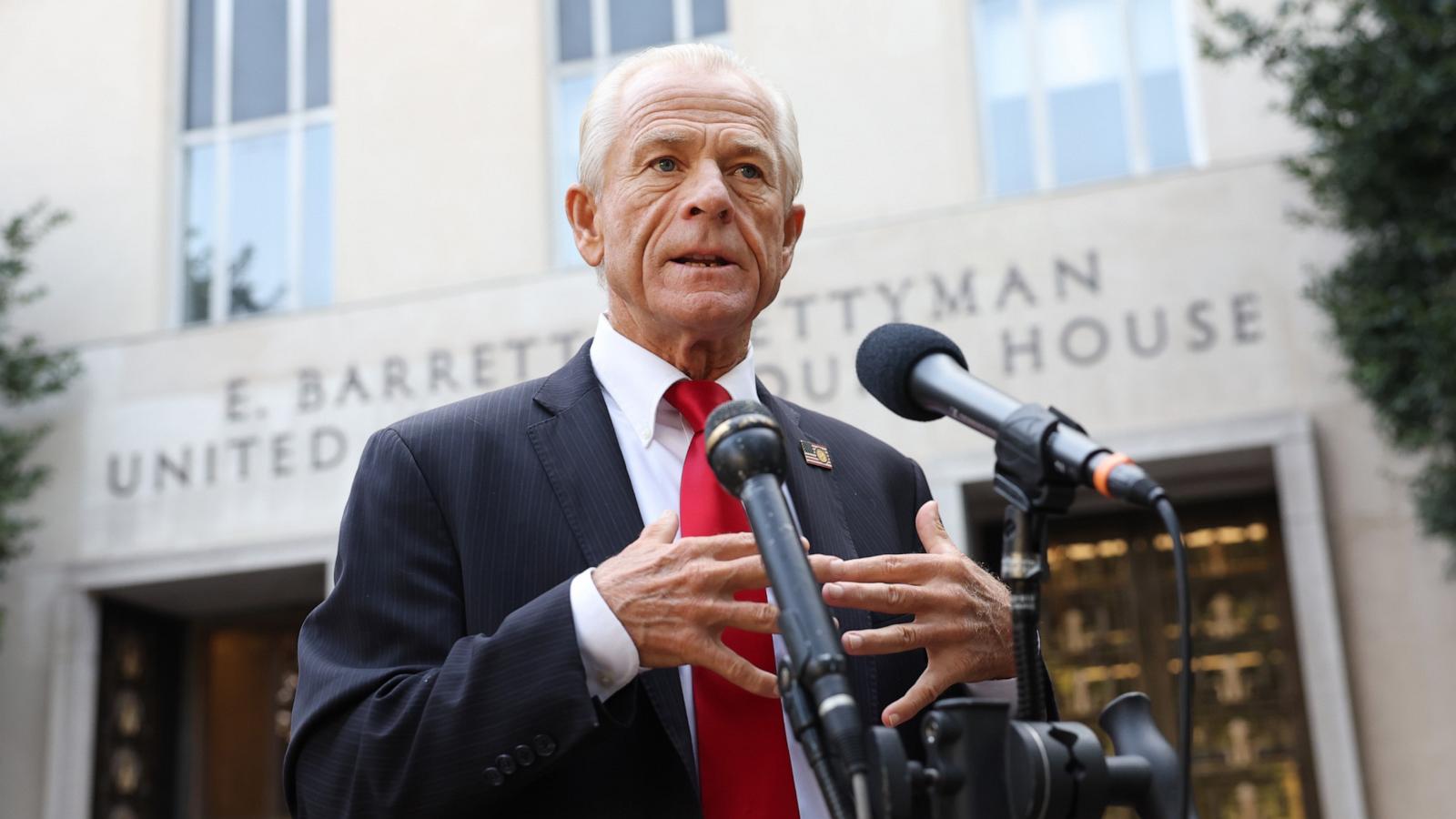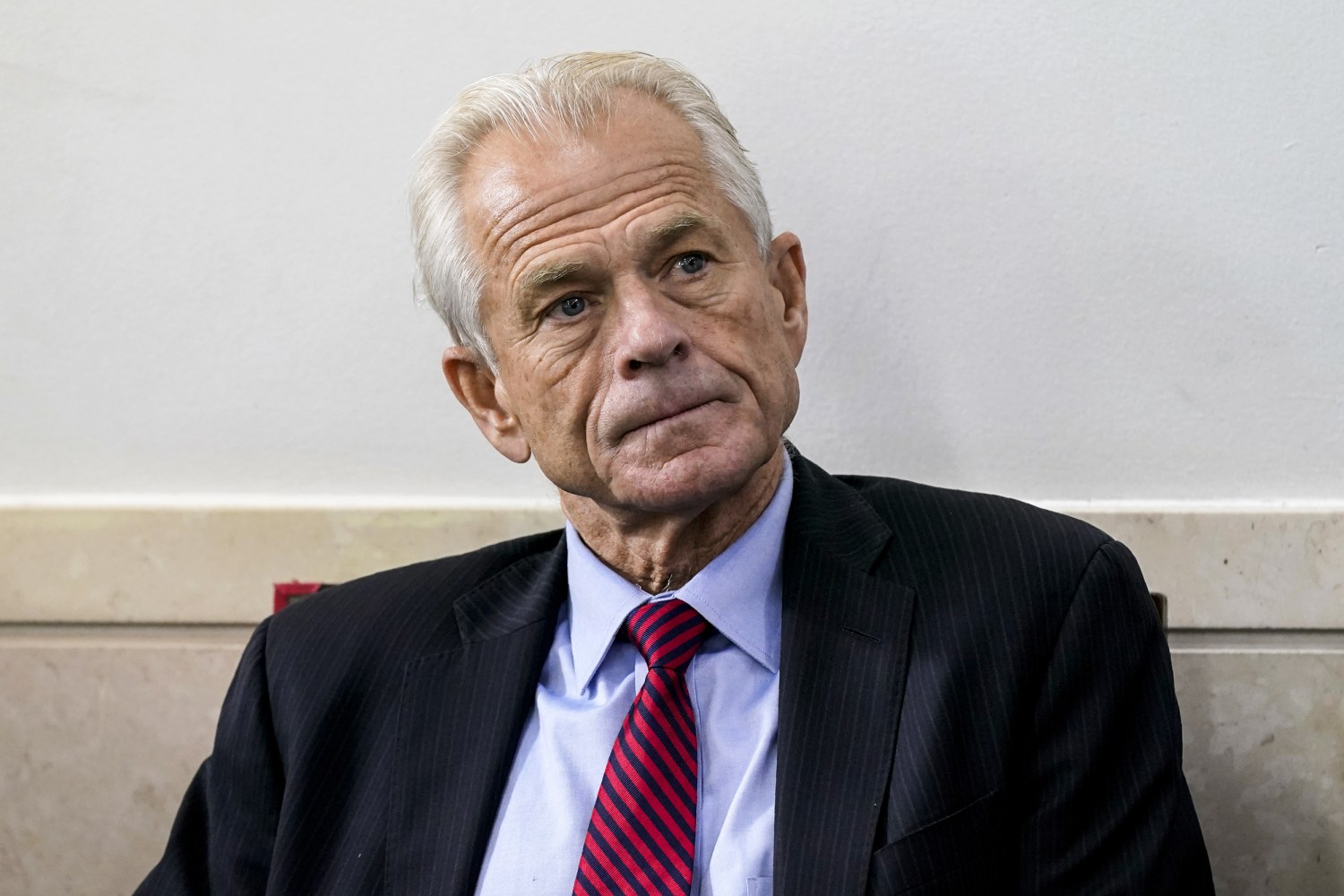News
Former Trump Adviser Peter Navarro Sentenced To 4 Months In Jail For Defying Congressional Subpoena

Peter Navarro was sentenced to four months in jail on Thursday for contempt of Congress after refusing to comply with a subpoena relating to the congressional inquiry into the January 6, 2021, attack on the U.S. Capitol.
In September, the House select committee looking into the incident found Navarro guilty of two counts of contempt of Congress.
Each offence carries a minimum sentence of one month in jail, but prosecutors requested that U.S. District Judge Amit Mehta sentence Navarro to six months on each count, running concurrently, and fine him $200,000.
Former Trump Adviser Peter Navarro Sentenced To 4 Months In Jail For Defying Congressional Subpoena
They told the judge last week that a one-month sentence for each of the two counts “is insufficient to account for, punish, and deter the Defendant’s criminal offences,” arguing that Navarro’s refusal to comply with the subpoenas was similar to the behaviour of some of the rioters.
“The Defendant, like the rioters at the Capitol, put politics, not country, first, and stonewalled Congress’s investigation,” the prosecutor’s report stated. “The Defendant chose allegiance to former President Donald Trump over the rule of law.”
Navarro’s conviction and sentencing mark another significant triumph for the now-defunct House January 6 committee’s efforts to have the Justice Department legally prosecute those who refused to participate in its investigation.
Steve Bannon, a former Trump strategist, was convicted of two contempt offences in 2022 and sentenced to four months’ imprisonment. Bannon’s case is now being appealed.
Former Trump Adviser Peter Navarro Sentenced To 4 Months In Jail For Defying Congressional Subpoena
Navarro’s attorneys are requesting a sentence of no more than six months probation for each count, and they asked Mehta last week to suspend the sentence while they appeal the conviction.
A speedy trial.
Last September, Navarro’s trial progressed rapidly, with the jury hearing all the evidence in less than one day.
Prosecutors put just three witnesses on the stand, all former House January 6 committee staff members. The Justice Department used its evidence to argue that the committee had a valid purpose to subpoena Navarro and that he was consistently aware of its requests.
In closing arguments, Prosecutor Elizabeth Aloi told the jury that Navarro “had knowledge about a plan to delay the activities of Congress on January 6” and that he was “more than happy” to expose that knowledge in public remarks but not to the House committee.
Navarro’s attorneys did not present any witnesses of their own, instead focusing on a portion of the contempt charge that required a showing that Navarro was willful and deliberate in his refusal to comply with the subpoena – that is, that his failure to comply was not the result of an unintentional mistake or accident.
Former Trump Adviser Peter Navarro Sentenced To 4 Months In Jail For Defying Congressional Subpoena
Navarro has stated that he did not comply with the subpoena at the request of Trump, who he claims used presidential privilege. However, Mehta ruled before the trial that Navarro had not met his burden of demonstrating that Trump had formally asserted a privilege or testimonial immunity that would have permitted his former adviser to avoid answering the committee’s questions.
The former aide has stated that he intends to bring it and other issues on appeal.
“The appeal of this case will definitely answer what is required of a former President to invoke executive privilege as to their senior advisors and no future advisor will be in the same position of not knowing that the President they served had not properly invoked the privilege,” the lawyers for the former president wrote in court papers.
The federal appeals court in Washington, D.C., is reviewing Bannon’s request to overturn his contempt of Congress conviction.
During oral arguments last year, some members of a three-judge panel handling the appeal appeared sceptical of Bannon’s attorney’s arguments that the trial court judge who oversaw Bannon’s criminal case erred in not allowing him to assert executive privilege as part of his defence and that the ex-adviser was acting on the advice of his then-attorney when he refused to comply with the subpoena.
SOURCE – (CNN)
































